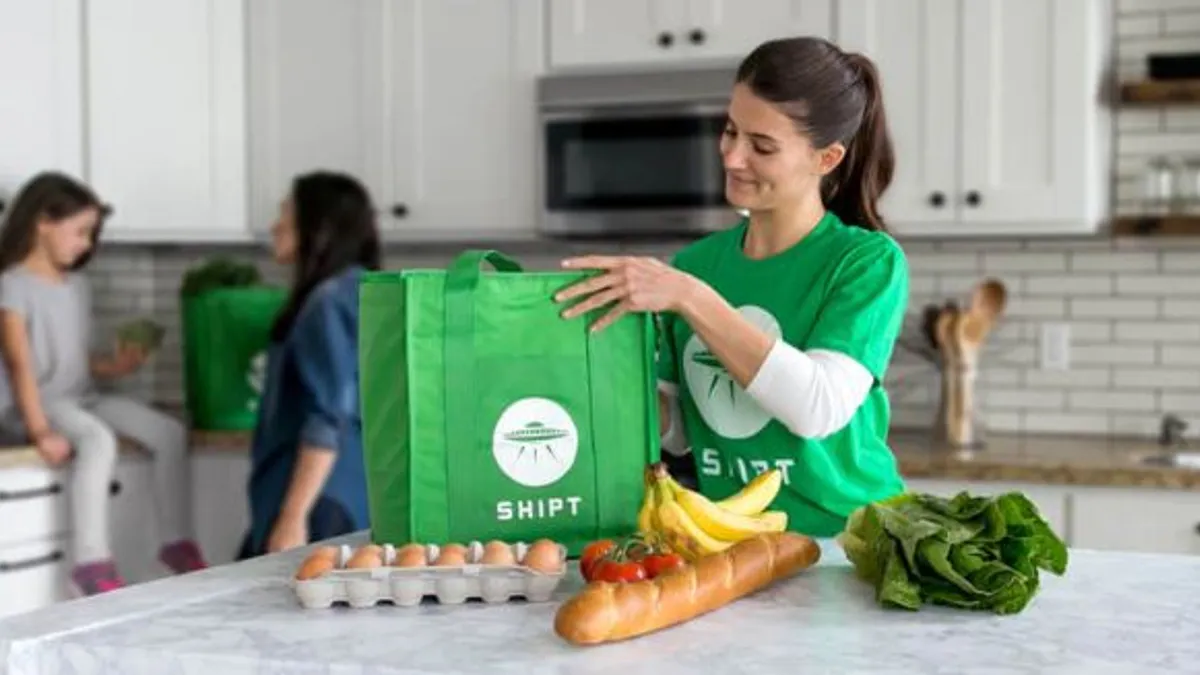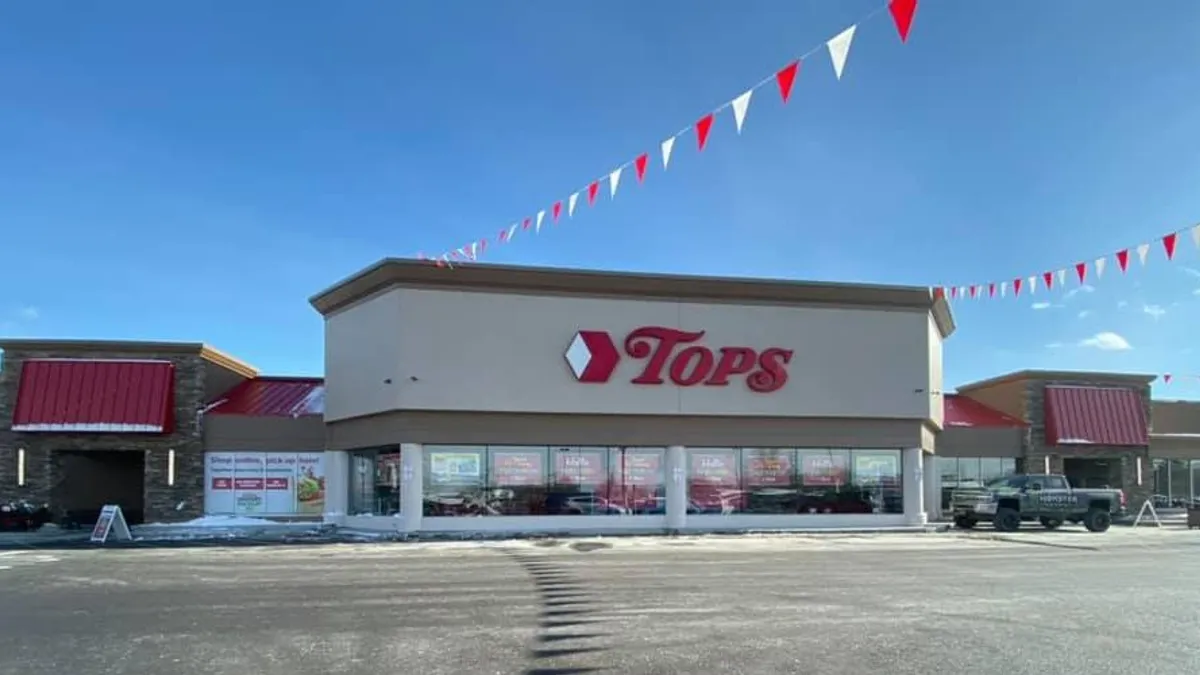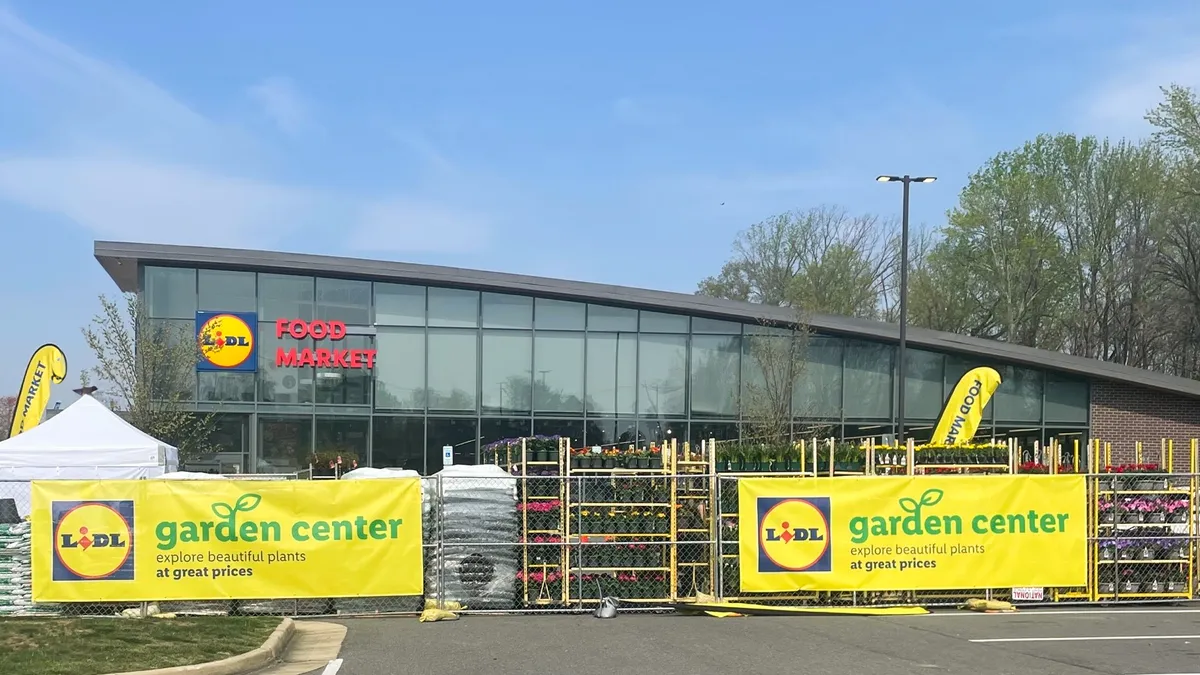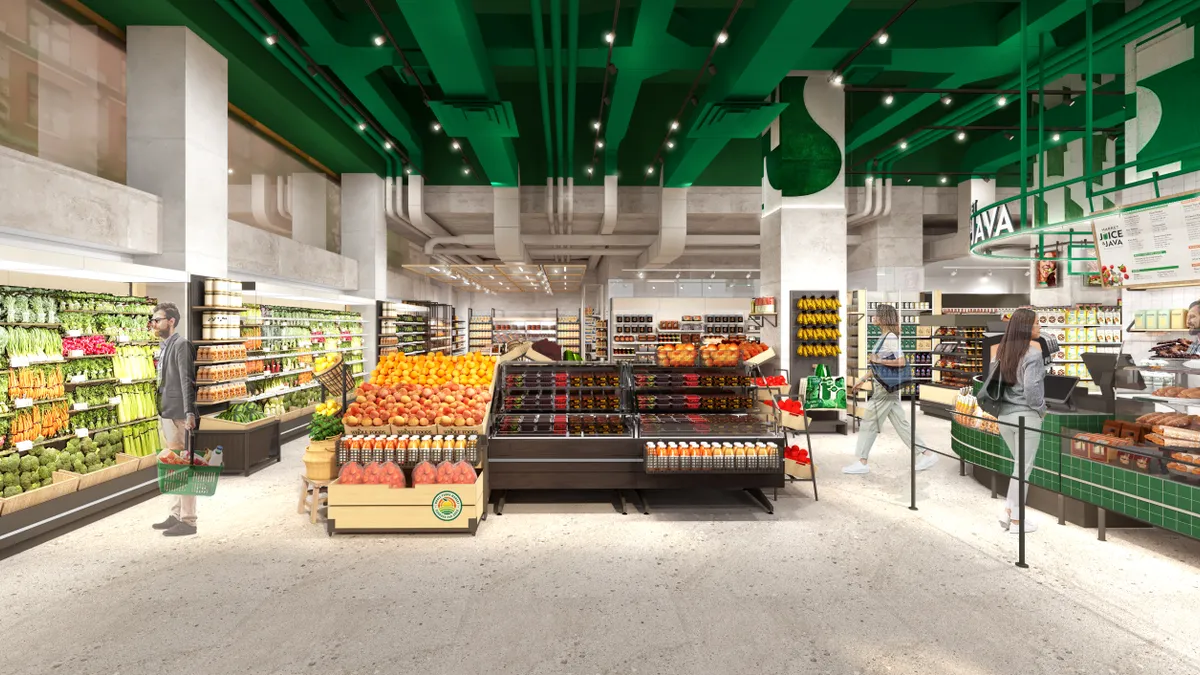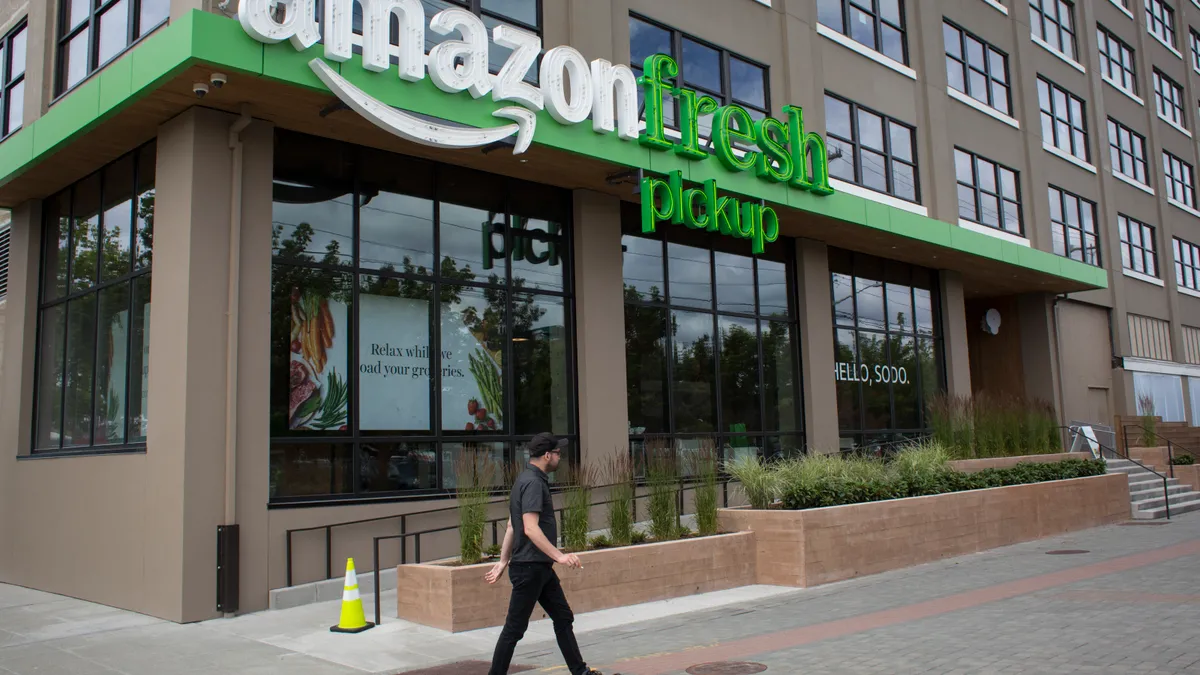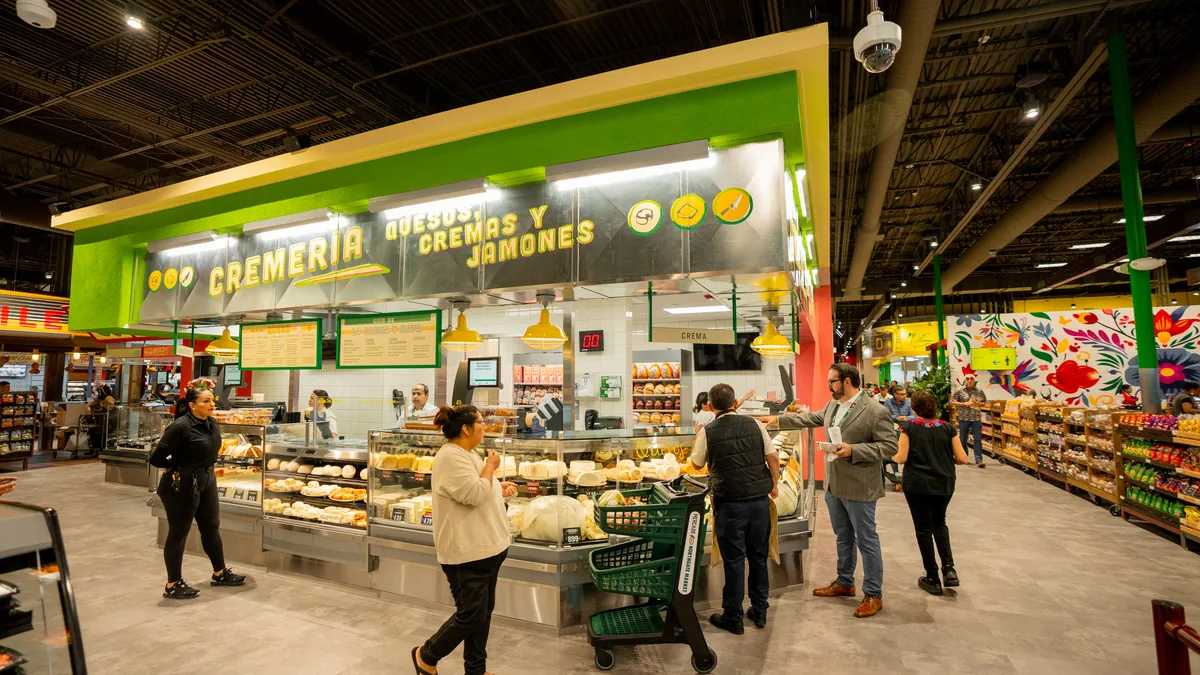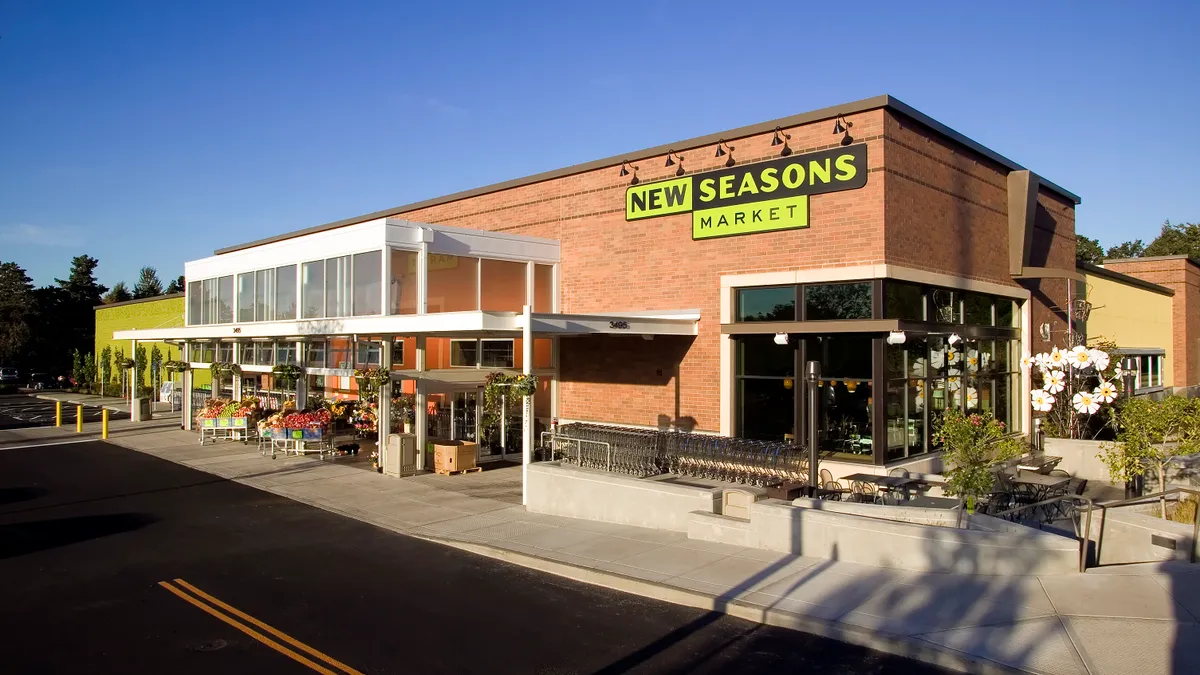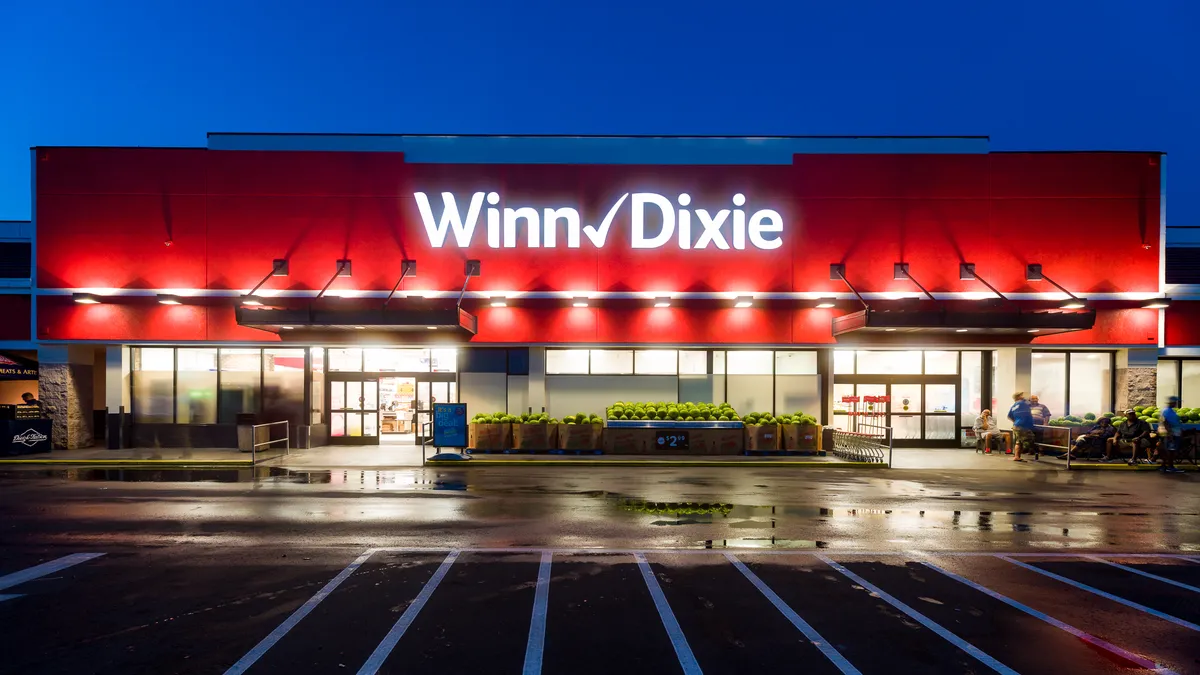Shipt has been a poster child for the rapid growth taking place in e-commerce throughout the food space. The Alabama grocery delivery company was purchased by retail giant Target for $550 million in December, just three years after it was founded. It has more than doubled the markets it serves to 200 since the acquisition. Today, more than 70 million households use its service.
"With Target, we're very deliberate to remind people that although Target acquired us we do operate as an independent subsidiary, probably for the obvious reasons, which is we work with a lot of other retail partners and some of those are competitors to Target and we want to keep it that way," Harley Butler, Shipt's chief marketing officer, told Food Dive. "We remained the same, we just grow quicker."
In an interview, Butler talked about his company's rapid growth, the reaction from other retailers who use Shipt, the purchase by Target and a host of other issues — including profitability, customer retention and its push into other categories beyond food. The interview has been edited for brevity.
FOOD DIVE: How have things changed since you were purchased by Target?
HARLEY BUTLER: We're an online delivery platform, the majority of that has been grocery. Now we've branched out into other areas. And so with the Target acquisition it's allowed us to kind of propel that momentum forward. ... At the end of last year, we were in roughly 70 markets. As of now, we're in over 150, so in six, seven short months we've been able to kind of expand. We're not quite national yet. We have a couple of the largest states to tick off the list that we are close to doing, and that will sort of complete the national expansion, which we have openly stated we'll have done by the end of ... this calendar year.
Is your growth something that would have come from Shipt organically or because of the purchase by Target?
BUTLER: I think there's a little bit of both in there. We would definitely grow on our own. I think what Target has enabled us to have is this, what we call an anchor tenant on the marketplace who is national. So a lot of the partners that we've had up until this point aren't necessarily national because the grocery stores, they're fragmented and it's regionalized, and so we haven't necessarily had a national player and that's what's helped give us the ammunition to just push forward will all these other roll outs. ... I think [Target's] definitely added to what we've been able to offer and attract in terms of new members. And then like any new retailer, you've now got an in-store base and a customer base that are excited to be able to get the convenience that Shipt offers.
Were any of your other retail partners concerned about working with you after the acquisition?
BUTLER: I think people made the obvious phone call to us when we were acquired by Target to see what's up and what does this mean. So we've been very deliberate in communicating around this independent subsidiary, but otherwise once people understand that, and it's a brief conversation, it's all very beneficial to the other retail partners because all of a sudden you've got the brand recognition of Target, and that helps grow the marketplace, and if they are an existing retailer on the marketplace and Target's joined, we've just seen incremental sales with those other retailer markets. Other retailers are happy about it. It's driving business for them.
How do other retailers benefit from Target's ownership?
BUTLER: The benefit is in driving more subscribers, more members that may come in looking to get access to Target that are now introduced to (a grocer's products) in that instance, which drives sales. The benefit is driving more subscribers who are then aware of other retailers that they can choose from.
Has being acquired limited your ability to grow beyond Target?
BUTLER: Not at all. From a business operational, logistics standpoint, they are letting us run exactly as we would continue to have run, and there's no difference there. We don’t share other retailers’ data with Target. You're a retailer, you don't want to be sharing specific customer insights or sales information with any kind of competitor. That's very clear, kind of contractually, quite frankly, and just in the way we operate.
What do you gain from Target and what does Target gain from you?
BUTLER: I think the speed, right? Like they just sped up the business model for us to be able to expand quicker. I think on their side of things they have a guest that they ... know wants all of the options available to them today to be able to get their Target run done. And so whether that's curbside pickup, whether it's restock, in-store pick up, two-day shipping, they now add Shipt same-day or as soon as one hour, frankly. So the convenience factor for their guest is a big one, and the way they think about is just across the board and speeding this up and making the Target run easier is a good thing.
How do you plan to grow? Where is future growth going to come from for Shipt?
BUTLER: It's really across the board, but if you think about the kind of areas that are sort of top priorities it's continuing to further our technology and then continuing to further our operations piece. We're at, let's see, 40,000 shoppers today that we have. Working across 40,000 and hopefully getting to double that size even before the end of this year requires a lot of operational support, and we want to make sure that we support our shoppers who are really kind of the key to our business model in many ways as best we can.
What are you doing within the company to innovate? What are some of the your priorities?
BUTLER: [Our members] love that we have this amazing shopper that does this very convenient service for them at a very high quality. ... We hire quality shoppers and we vet them very, very well and we're very proud of the service we're able to offer. But on the other side, as the member base grows and as we expand across different demographics, we're definitely seeing people interested in all sorts of other value-adds, like nutritional information, being able to find things easier and planning meals more conveniently. ... We want to make sure that it's more than just convenience, but we're helping you plan your meal. We're helping you understand what food you're bringing into your household ... We just want to build on the personalization that we have today.
As you and Instacart sign these partnerships, how do you go about proving over the long term that this will be beneficial for the retailer?
BUTLER: We'll see how all of this shakes out over time, but my personal point of view is that it's important not to have 15 retailers available to our member in any given market as opposed to three, four, five that provide high-quality vertical specifics. So if you can make a big-box retailer, maybe it's Costco, then you think about your Targets, then you think about the local supermarket that you go to, then maybe a more specialty supermarket and then maybe an alcohol distributor. We know that our members want that whole vertical and if we can tap into a relationship with a retail partner that has a majority market share for each of those verticals then I think we are bringing a better overall value to our members and it significantly helps the partnership. Retailers don't want to just know they're getting into a game where it's back to the drawing board, there are 20 other retailers they are competing with in the same market on the same platform. ... I personally think we can avoid all that by just having stronger partnerships.
Do you plan to keep Shipt separate from Target?
BUTLER: 100%. The plan is to keep it headquartered in Birmingham and then maintain the office that we have in San Francisco, and grow both office locations. ... What's great about the partnership [with Target] is that a lot of their core values seem very similar to ours, and so we have this neat thing which is that we are based in Birmingham and it’s sort of the DNA of our company — a lot of good things have come out of having that atmosphere in Birmingham and we definitely want to keep it that way.
How much of your growth is coming from new categories and what is coming from grocery?
BUTLER: I won't mention the exact stats, but the growth in non-grocery has been exponential, but, of course, that is a newly added offering to the platform, so it's no secret that for the majority of the existence of Shipt we have been delivering groceries and that's pretty much it. It's exciting that we can offer more, a bigger assortment now. There's something like 55,000 items in Target that we can now deliver to our members. As we grow into those areas, and Meijer is the same way, and Costco, we work with them in select cities, so bringing that to the members is exciting.
Are you profitable or close to profitability?
BUTLER: We don't talk about those numbers publicly and we certainly don't need to now being owned by Target as an entity. I think as a business model, I think we've always been able to validate very early that people are willing to pay a premium for convenience, and that's through the membership model and it works.
Talk about customer retention, how do you do that? How do you retain customers?
BUTLER: We do have a high-retention rate of our subscriber base, and I believe a lot of that's driven by the shopper experience that they have.
You use a store-focused model, but as online orders go up and more business comes online, does it make sense to use the store as a distribution or fulfillment center?
BUTLER: I think there's a long way to go in the space. What we do know, right now, is that people still want a combination thereof, and so, yes, there is the convenience of ordering and maybe doing a regular order through a service like Shipt every Sunday, but people also like to go to the grocery store, or to Target in this case — Meijer, Costco. We think it's very interesting that people still want to do all of it. ... There are two big levers at play, one is just growing market share around the idea that you can now have this delivery service and this convenience that's still very new to a lot of people in big cities. So we need to grow that market share, and then we need to see how much of that share of wallet we can grow. But no, I think it's supplementary. I think this is sort of why it works well with retail partners because at the end of the day, they know they're getting sales but they won't offer that same experience in a store ... It's not a concern. I think it's a way to kind of just help grow the overall space at this point.



